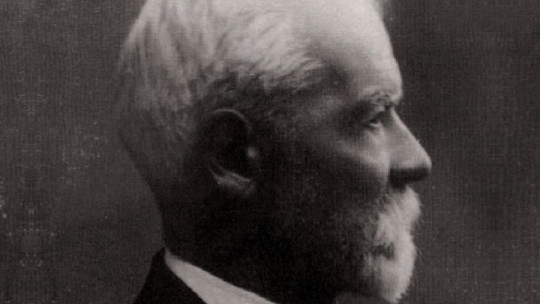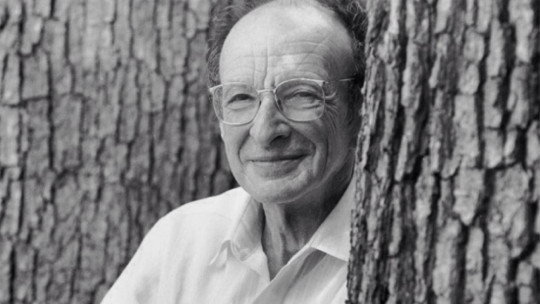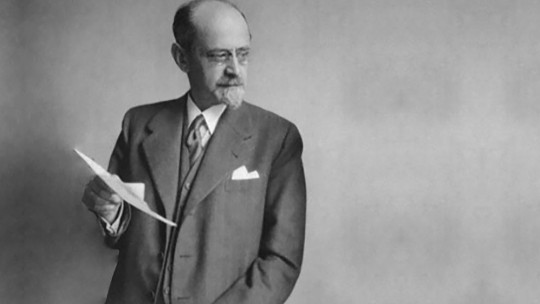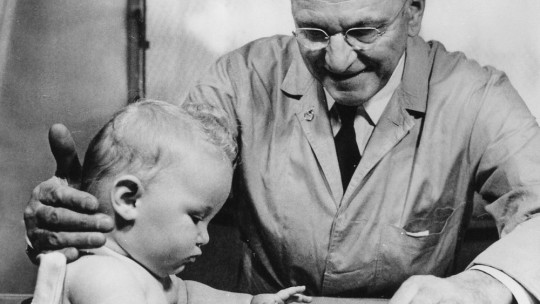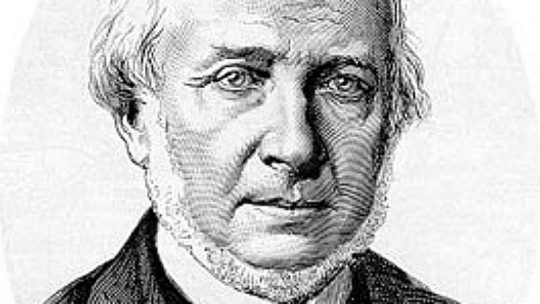
The genetic perspective is one of the essential features that define the psychology of Henri Wallon We can say that he is the founder of genetic psychology, an original way of understanding the individual’s mind throughout its history.
We are going to review the most important key ideas to understand Wallon’s ambitious theory on how the human mind is generated and develops from childhood and the first stages of growth. We will review his biography and his main discoveries and theories.
Biography of Henri Wallon
Wallon, a French psychologist and philosopher born in 1879 and died in 1962, is considered a “forgotten founder” of modern psychology, along with Freud and Piaget. Probably due to his Marxist ideology, which permeates all of his theory, and to the importance gained by other works of the time translated into English.
Wallon believed that it was not possible to study the mind in any other way than jointly While the structuralists attempted to study each component of the mind separately, he brought together affectivity and intelligence and studied the psyche as a whole.
It manages to put an end to the classic dualism of psychology: the psychology of the mind, of mental functions, versus the more physical psychology, that of the study of the nervous system. Wallon insists that both aspects not only coexist but complement each other. It is impossible to understand the human being if it is not through his faculties and his nervous system.
This conciliation of opposites is called dialectical materialism, a Marxist inheritance. That is why, when we talk about Wallon, we say that he is a dialectical-genetic psychologist. Dialectic because he proposes a “dialogue” between the traditionally opposite, and genetic because the most important thing to understand the mind is to conceive it from its genesis.
Genetic Psychology
What exactly do we understand by Genetic Psychology? Henri Wallon himself defined it with the following statement: “genetic psychology is that which studies the psyche in its formation and in its transformations.”
Wallon’s genetic psychology is an original method of analysis. Like his contemporary Piaget, he criticized the ahistorical approach of the Gestalt psychologists. Wallon was very aware of the need to study the mind and its development from birth to understand it as it presents itself in adulthood, as the result of a history of transformations. Here he draws a parallel with Vygotsky, who also places emphasis on the discovery of the genesis of behavior to explain its development.
So is Wallon a child psychologist? Although he spoke of the human mind through the characteristics of the child, he did so because he claimed that only through understanding the child psyche and its evolution could the adult mind be known. That there was no point in studying the psychology of the adult man once it was formed and consolidated, it would be like trying to learn how to paint a painting by contemplating it once it was finished.
Child development according to Wallon
Wallon assumes a series of principles that mark development. For him, although the child’s evolution occurs in many directions at the same time, there is always a function that stands out and is characteristic of each stage.
He is also not in favor of a quantitative approach to development. Many psychologists understood the child as an adult who still lacks some specific functions, an egocentric posture that sees the infant as a potential adult who adds developmental milestones. Wallon defends that development must be seen as it is, and not for what “it will become”, observing the respective evolutionary stages and taking into account the differences between them.
Wallon realizes that development is not a continuous line; The characteristic activities of one stage do not always continue in the next, others frequently arise that replace them or become contrary. He proposes that development is oscillating: each stage is marked by an inward or outward orientation, and this characteristic alternates in each stage.
1. Stage of motor impulsivity (0-6 months)
The stage is named after the main activity that the child carries out: responding to external and internal impulses and executing movements as a form of energy discharge. It is an inward-oriented stage, or centripetal as Wallon says.
2. Stage of emotional development (7-12 months)
In this centripetal stage, the child develops the emotional responses that will allow him to interact with his social environment in the most primitive way. Children, through emotional expression, establish contact with others and gradually begin to become part of a world of shared meanings.
For Wallon, emotions have their origin in the internal sensations experienced by the newborn, or even the fetus. These global affective states are reflected in motor activities (for example, in the child shaking his arms when he is happy) that others interpret as a representation of an internal state, emphasizing the social function. It is through this socialization that emotions go from being simple physiological reactions to communicative expressions.
3. Sensorimotor and projective stage (2-3 years)
At this stage the child begins to explore the physical world around him thanks to new linguistic and locomotion skills. It is, therefore, a centrifugal stage. According to Wallon, the infant feels the need to investigate his surroundings. Since sensitivity is already well developed, he will do it through the senses. He will pick up objects and put them in his mouth to explore them better.
It is at this stage, furthermore, that he participates in what Wallon calls “alternation games.” They are turn-based games where the child alternates between two poles of the same situation: the active and passive position. For example, playing catch and then playing catch, hiding and then looking for the hidden person, throwing a ball and receiving it. This reflects the child’s ability to separate her existence from that of others. To recognize himself as an “I” and begin to crystallize his ego as different from others.
4. Personalism stage (3-6 years)
It is a centripetal stage marked by individualism. The use of the first person, the appropriation of all the objects he sees and oppositionism are a reflection of the crystallization of the child’s ego. The infant begins to exhibit narcissistic characteristics and seeks the approval of others. Ultimately, not content with his own behavior, he begins to look for role models in others and acquires a new repertoire through imitation.
5. Categorical stage (6-11 years)
The last stage of childhood is characterized by the use of the intellectual instead of the emotional. Schooling allows intellectual skills such as memory and attention to take center stage. As intelligence develops, it is capable of creating categories and, later, thinking abstractly.

